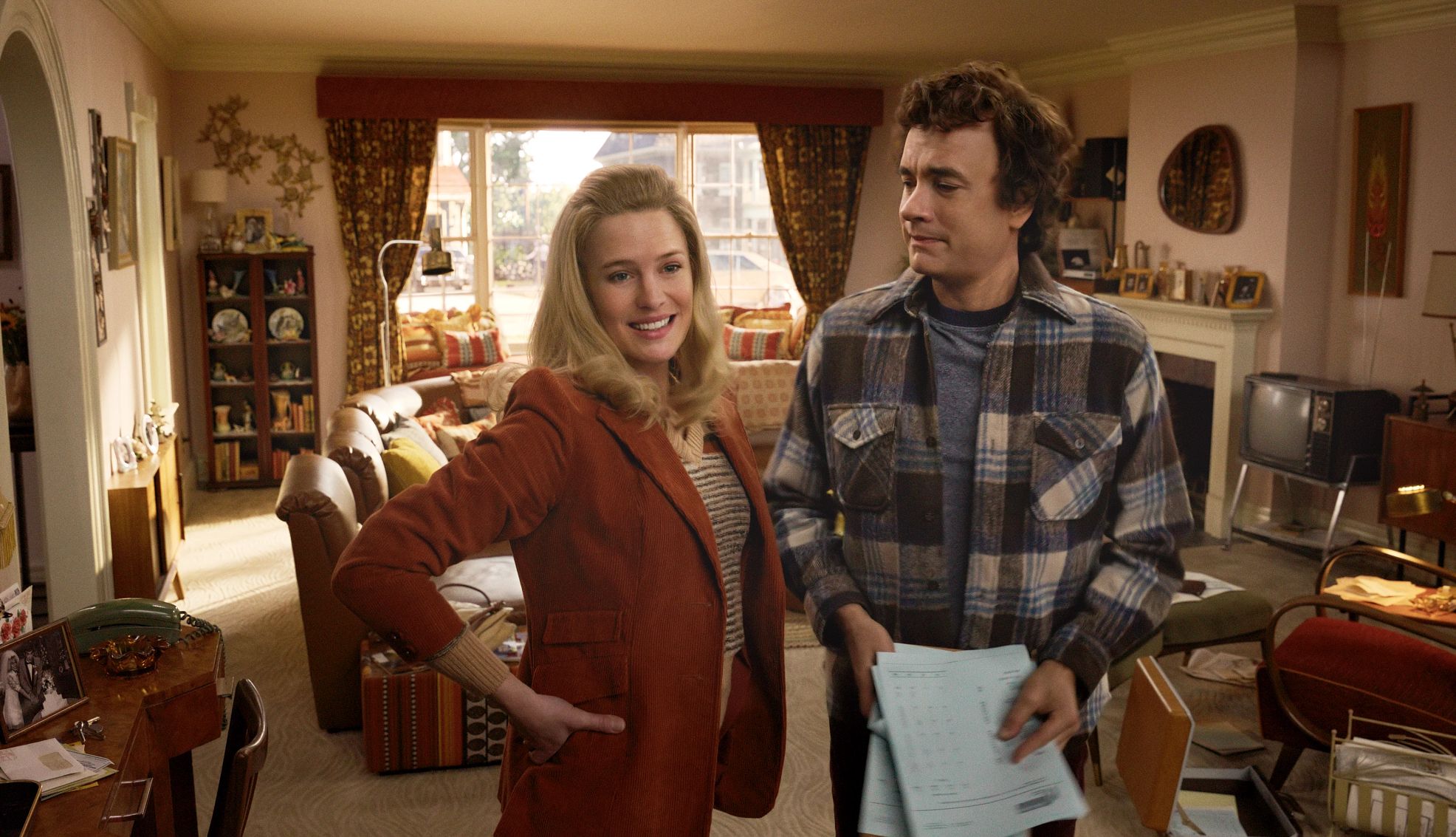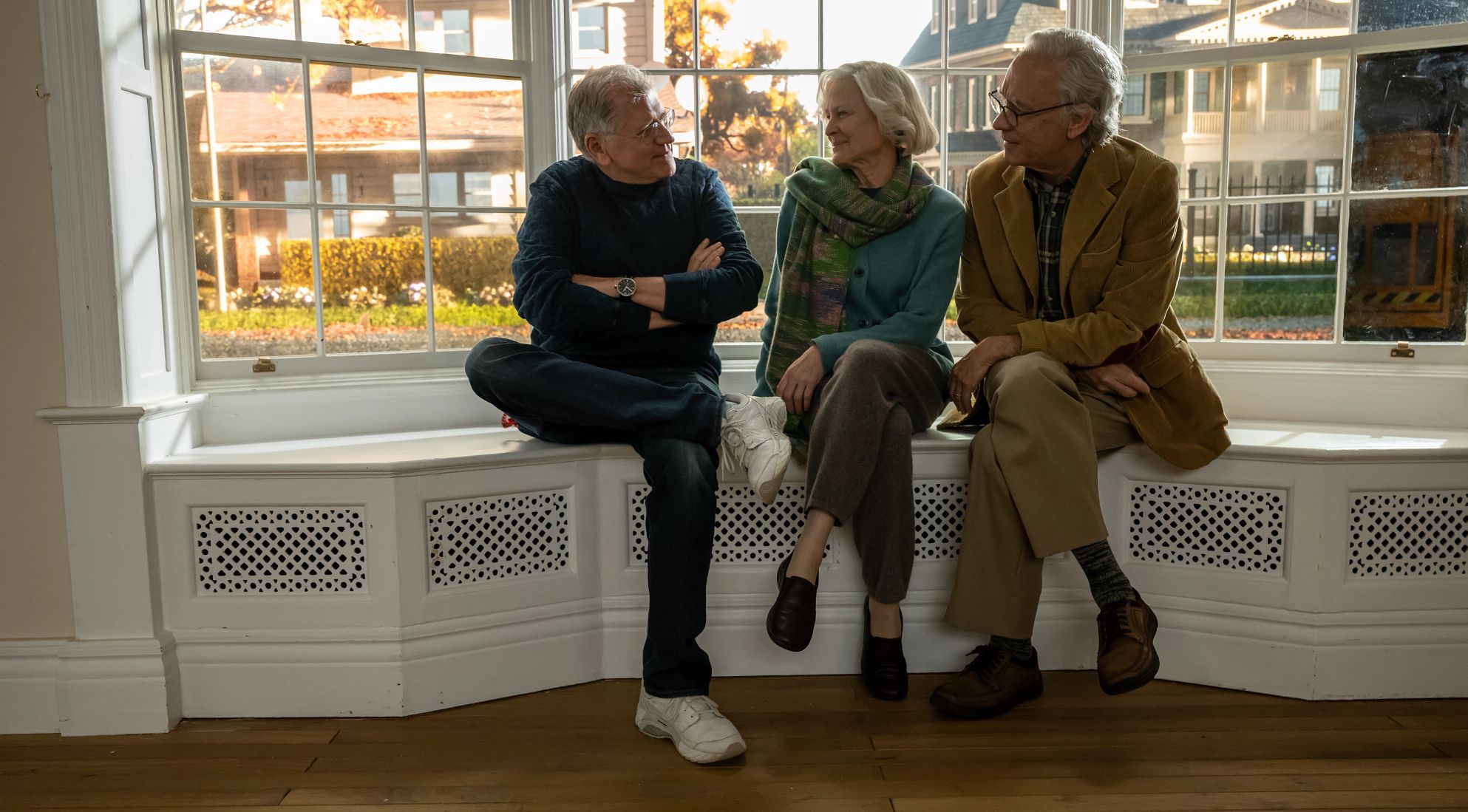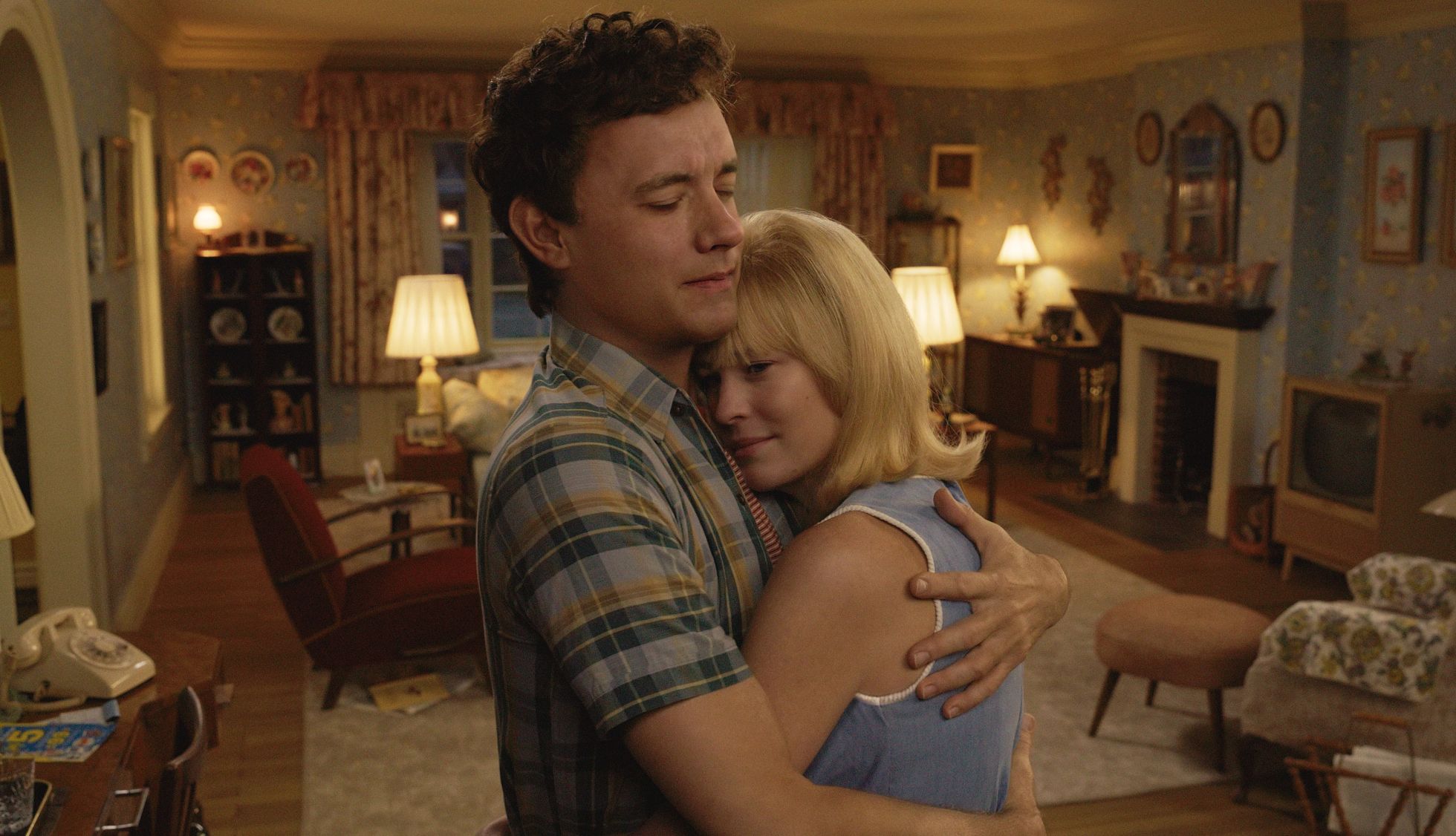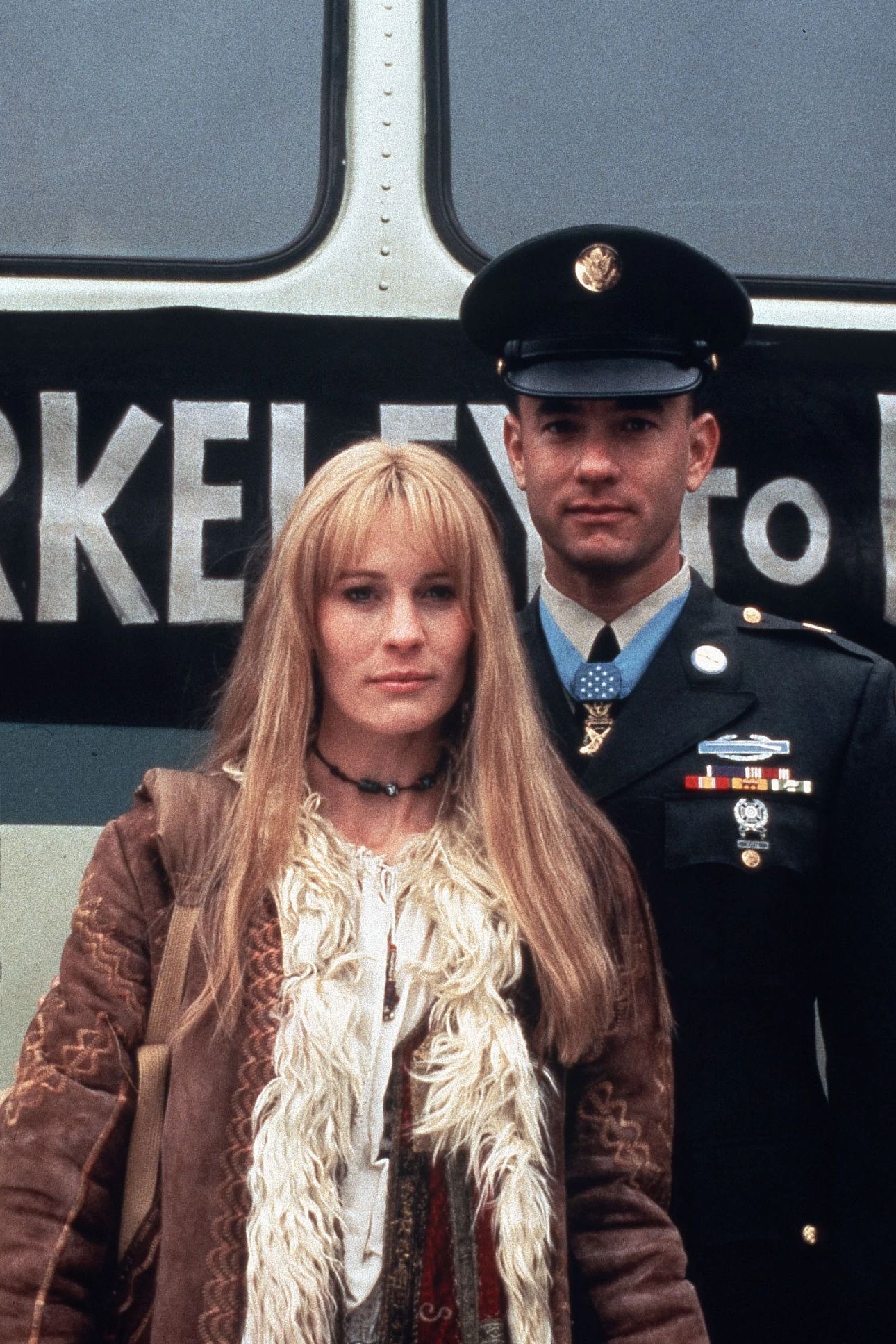AARP Hearing Center


Here (in theaters Nov. 1) isn’t a sequel to the 1994 Oscar-winning hit Forrest Gump, whose hero races through American history circa 1951-82, but it’s a reunion of Gump stars Hanks, 68, Robin Wright, 58 (again playing his wife), director Robert Zemeckis, 72, and writer Eric Roth, 79. And few films since Gump give you such a vivid, intimate sense of the times the AARP generations have lived through. Here depicts the entire life of the family of Richard (Hanks) and Margaret (Wright) in one room of their house, mostly from WWII to today, with a few flashbacks to the area’s occupants dozens, hundreds and thousands of years before. It’s a movie about our memories, like Forrest Gump, only wiser and deeper, and its use of controversial AI aging and de-aging technology is spectacularly convincing.
Hanks, Wright and Zemeckis told AARP what it was like to take a trip through time in Here.


Seeing themselves de-aged to look like they did as teenagers astonished Hanks — and Wright burst into tears
The actors got to see their performance on video — then see themselves transformed in age, often decades older or younger than they really are. Hanks compares it to experiencing instant time travel. Wright wasn’t weeping over lost youth, but because seeing herself look 19 brought back how she felt back then, as a nervous, innocent ingenue — and the tech enabled her to play that person. “I was also crying at just the amazement of this tool. We know the negatives about AI, right? It certainly can be used in a way that threatens actors, and is. But in this particular instance, it was a great tool, allowing our eyes to be 19 — our eyes have a lot of life behind them now, we're not as naive and young.”
Don’t miss this: Why Hollywood Should Stop De-Aging Actors































































You Might Also Like
A Marine's Hell Sparks a Storied Career
The first Medal of Honor recipient to return to VietnamWhy the Cure Might Be the Best Soundtrack for Middle Age
The goth icons have a new album coming out soon — though my relationship with their old songs is still evolvingJudith Light is Loving Life Right Now
Actor says, 'It's very important to be proactive' when it comes to choosing roles at her ageRecommended for You